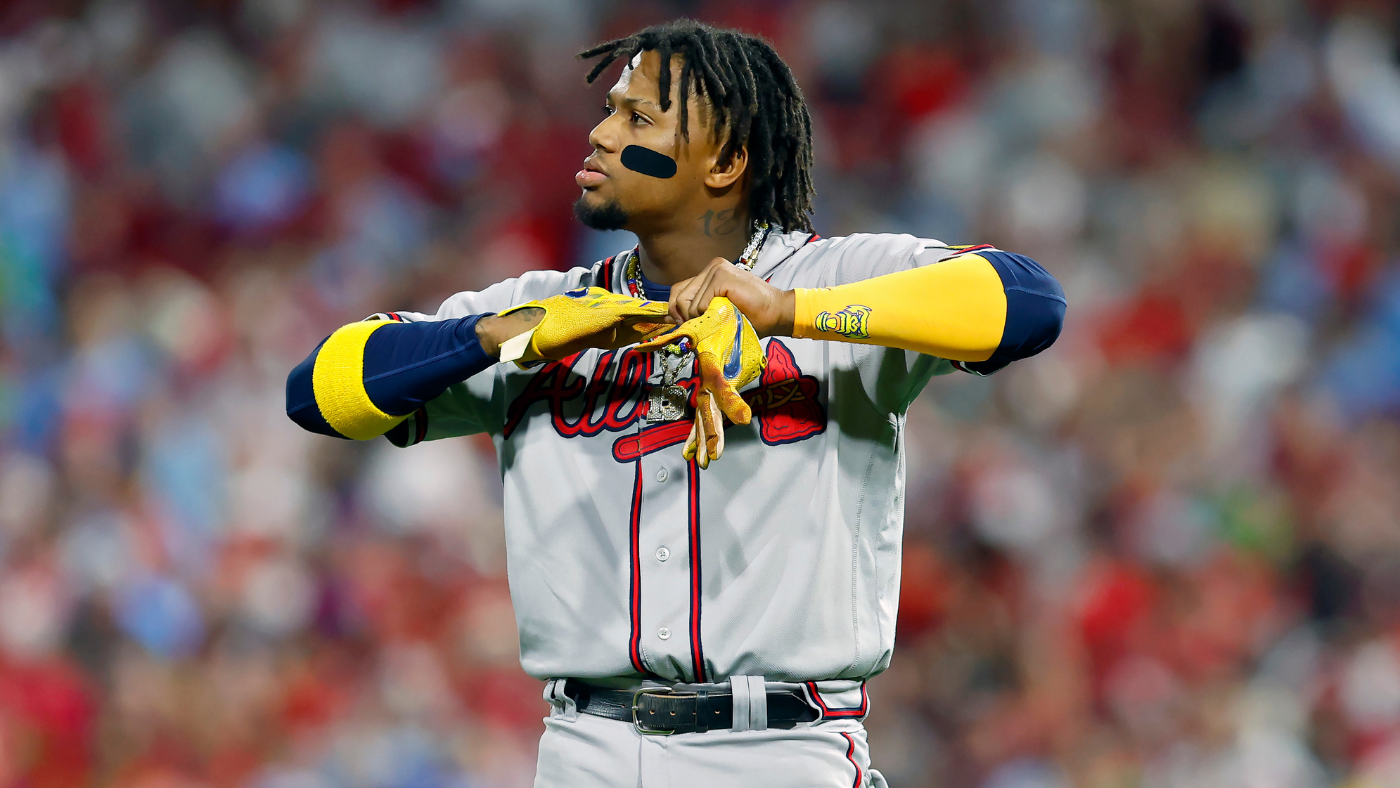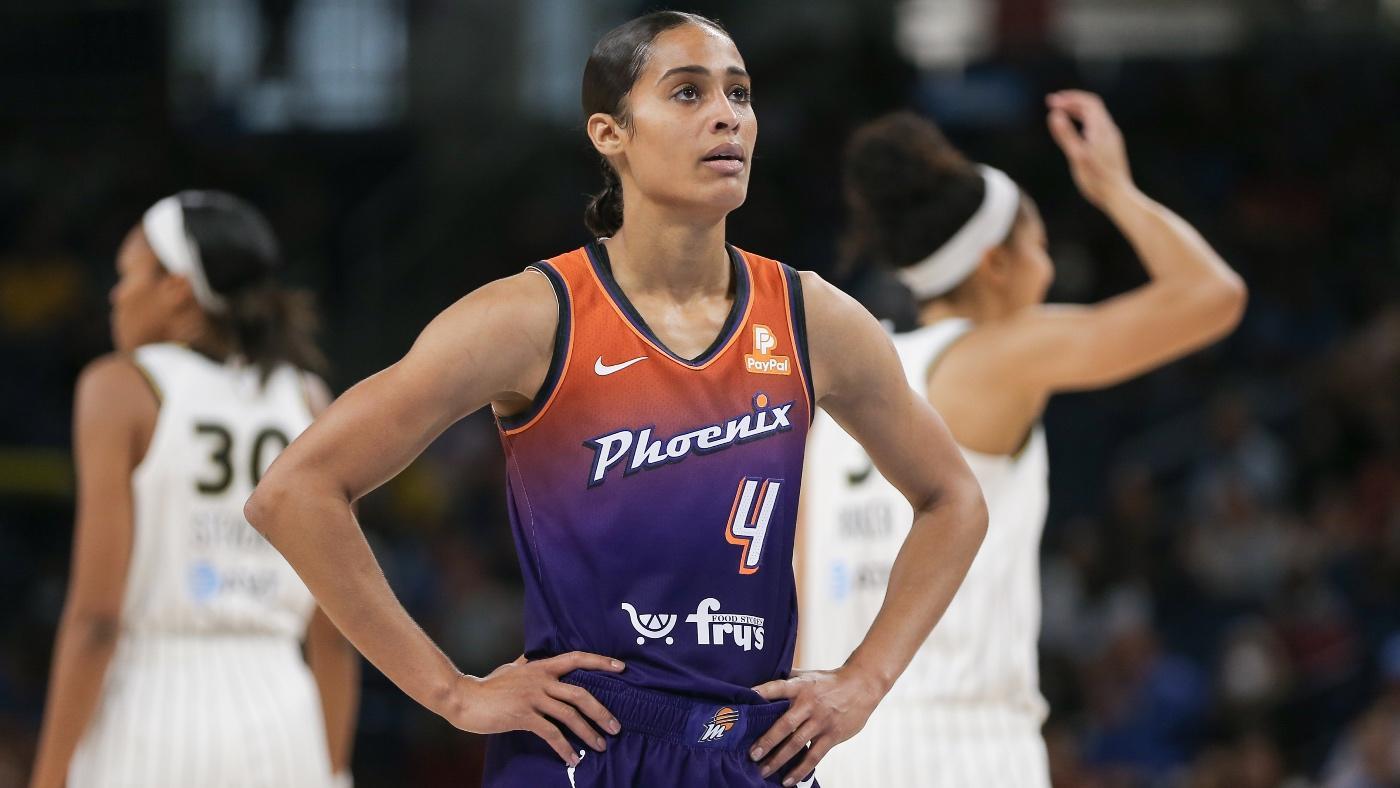2023 MLB playoffs: Four reasons why top-seeded teams, including three 100-win clubs, keep getting eliminated
Written by CBS SPORTS ALL RIGHTS RESERVED on October 14, 2023


A theme emerged during the first two rounds of the 2023 MLB postseason: the best regular season teams were all eliminated early. The four teams still standing — Arizona Diamondbacks, Houston Astros, Philadelphia Phillies, Texas Rangers — all won 90 games or fewer. It is the first time in a non-strike or non-pandemic season each of the final four teams failed to win even 91 games.
The teams with the five best records during the regular season went a combined 1-13 (!) in the postseason. Here’s how things shook out for those five clubs:
- Atlanta Braves: 104-58 (lost NLDS 3-1)
- Baltimore Orioles: 101-61 (swept in ALDS)
- Los Angeles Dodgers: 100-62 (swept in NLDS)
- Tampa Bay Rays: 99-63 (swept in Wild Card Series)
- Milwaukee Brewers: 92-70 (swept in Wild Card Series)
The new postseason format has come under scrutiny but the complaints ring hollow for me. The bye week is one day longer than the All-Star break. If that’s long enough to disrupt your timing, that’s on you. If the bye is that big of a deal, give the top teams the choice between the bye and playing the Wild Card Series. I think we all know how that would go.
(To be clear, the complaints about the postseason format are coming from fans and media. The players have not complained at all. If anything, they’ve done the opposite, and refused to use it as an excuse.)
Is there a reason baseball’s best regular season teams have all been sent home for the winter? Well, no, there’s never one specific reason a team loses a postseason series. It’s always a combination of things. Here are a few reasons baseball’s best teams had the earliest exits this October.
1. Star players didn’t play like stars
Obvious statement is obvious: to advance in the postseason, you must play well, and that is especially true of your stars. You need your best players to be your best players in October, like Yordan Alvarez for the Astros and Corey Seager for the Rangers. For several of the teams already sent packing, their best players had poor series that contributed to their elimination. To wit:
| PA | AVG/OBP/SLG | HR | RBI | |
|---|---|---|---|---|
Ronald Acuña Jr. and Matt Olson, Braves | 34 | .200/.292/.233 | ||
Mookie Betts and Freddie Freeman, Dodgers | 24 | .048/.167/.048 | ||
Cedric Mullins and Adley Rutschman, Orioles | 25 | .042/.080/.083 |
“I did absolutely nothing to help us win,” Betts said after he and Freeman went a combined 1 for 21 with an infield single in the NLDS. Here’s what Mullins told reporters, including the Baltimore Sun, after his 0 for ALDS performance: “Me trying to get in that leadership role, get stuff going, and personally not being able to do that, I feel terrible for not being able to find a way.”
Why did these star players fail to perform? There are countless possible reasons. Maybe the bye really did mess up their rhythm. Maybe they’re playing through injuries we don’t know about. Maybe they’re all massive chokers who can’t handle the spotlight. Or maybe they each just had 3-4 bad games at the worst possible time. It happens every postseason to someone(s).
This is not unique to this postseason. When a team gets sent home, it is usually because their best players didn’t perform after carrying them all season. Sometimes someone else picks up the slack and the team advances anyway, but often not. This is true in every sport. When your best players don’t perform, you’re going to find yourself on the golf course.
2. They were flawed to begin with
Why, exactly, should I have expected the Dodgers and their patchwork rotation — Clayton Kershaw and his achy shoulder, rookie Bobby Miller, 44-homer man Lance Lynn — to beat any team this postseason? Granted, the rotation allowing 13 runs and getting 14 outs in three games is extreme, but the Dodgers could have played the D-backs in a best-of-nine and I don’t think the outcome would have been different. Their rotation was that compromised.
Baltimore’s rotation has been a question since last year and GM Mike Elias flat out did not do enough to address it. Last offseason he signed Kyle Gibson, a perfectly serviceable veteran innings guy but not someone who will move the needle much, and he rolled the dice on Jack Flaherty’s upside at the deadline. That’s it. Neither was a factor in the ALDS. The Dodgers and O’s went into the postseason with obvious weaknesses that were then exploited.
Compare them to the Rangers, who signed Jacob deGrom and Nathan Eovaldi last winter. When they got hurt, Texas brought in Jordan Montgomery and Max Scherzer. The Phillies had five very good starting pitchers, yet they added Michael Lorenzen at the deadline anyway. That allowed them to back off Ranger Suárez and keep him fresh for October. They showed much more urgency and put themselves in the best position heading into October.
In the Rays’ case, they were missing several key starters because they can not keep pitchers healthy. They brought back the same offense that got shut down last postseason, and it got shut down again this postseason. The last few years of Brewers and Rays postseason baseball — we can lump the 2021 San Francisco Giants in here if you’d like — suggest teams built around optimizing the specific skills of roles players have a ceiling. When you keep losing in the postseason the same way, there’s a team-building issue.
There is no such thing as a perfect team. Even the very best teams have a weakness and some are more glaring than others. The Dodgers and Orioles were poorly equipped for postseason baseball with their rotations. The Brewers lack home run power and the Rays have not hit in multiple postseasons now. It’s no longer a surprise when it happens. Just about all these top teams that have been sent home had an obvious shortcoming coming into October, and it proved to be their undoing.
3. The regular season is not the postseason
To put it another way: are we sure the best teams lost? There was a 14-game difference between the Braves and Phillies during the regular season, but they had almost the exact same record the last six weeks of the season. Are we really, truly certain the Rays and Orioles are better than the Rangers? What about the Dodgers suggested they were primed for a deep run?
Regular-season record and run differential rarely represents the team you see on the field in the postseason. What happened in April, May, and June doesn’t have much bearing in October. The D-backs are an excellent example. Consider:
- They ranked 18th in bullpen ERA during the regular season, but third in September after closer Paul Sewald was acquired and setup man Ryan Thompson was signed, settling things down and moving people into more appropriate roles.
- Alek Thomas hit six homers in his final 69 games after hitting three in his first 57. Gabriel Moreno had four homers in August and September after hitting three in the first four months. Young players discovered their power stroke late in the year.
- Brandon Pfaadt’s overall 5.72 ERA hides a much more respectable 4.14 ERA in August and September. Nine times in his final 12 starts he allowed three runs or fewer. He’s another young player who figure things out late in the year.
José Abreu is another example. He had his worst season (by far) this year, but after returning from a back issue in late August, he hit like himself the rest of the season, including swatting eight homers and driving in 34 runs in his final 31 games. Abreu went deep three times in the final two games of the ALDS. The Abreu the Astros have now is not the Abreu they had most of the year.
The regular season and the postseason are two different things. You may not like it and I totally get that sentiment, but that is way the sport is designed. It is possible to be a better postseason team than regular season team. What you watched the last six months is not always predictive when you get to October. When your opponent only uses his best pitchers and never rests his top hitters, he’s going to be better than he was in June.
4. Sometimes, you just lose
The nature of the beast is that a very good team will get sent home after each postseason series and, frankly, the best team winning every series would get old quick. The unpredictability is what makes baseball fun. All the complaints about the best teams being eliminated early are essentially an argument against upsets, and I can’t get on board with that.
It’s an unsatisfying answer and people don’t like hearing it, but sometimes you just lose. Not counting overlapping stretches, 10 times during the regular season the Braves lost three of four, including several times to teams much worse than the Phillies. Am I supposed to find fault with the postseason format because the Brewers and Rays had the audacity to lose two in a row?
Postseason baseball lends itself to storylines and we tend to ascribe wins and losses to certain things, but really, a lot of time we’re talking about 3-4 game stretches in which things don’t go according to plan, and you get beat. There isn’t always a deeper meaning. It’s baseball. You win some and you lose some, and in the postseason, only one team can win more than it loses in a given series. Someone has to go home and it just so happened to be the best regular-season teams this year.
The post 2023 MLB playoffs: Four reasons why top-seeded teams, including three 100-win clubs, keep getting eliminated first appeared on CBS Sports.







